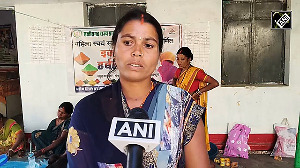
Amidst the controversy over slapping of sedition charges, government on Tuesday said the Law Commission has conveyed that it has identified certain focus areas and formed subgroups to deliberate on allegations of abuse and arbitrary use of the law.
Minister of State for Home Haribhai Parathibhai Chaudhary said in Lok Sabha that the ministry of law and justice has requested the Law Commission of India to study the usage of the provisions of Section 124A (Sedition) of Indian Penal Code, 1860.
“On December 11, 2014, the Law Commission has intimated that they have identified certain focus areas and formed subgroups to deliberate on such issues,” he said in reply to a written question.
The minister was replying to questions on whether the government has taken serious note of allegations of widespread abuse and arbitrary use of sedition law by police in the country and whether the government proposes to bring reforms in the entire sedition law drafted in the colonial era.
The government’s response came amidst the raging row over slapping of sedition law against president of JawaharlalNehruUniversity students union Kanhaiya Kumar for allegedly raising anti-India slogans.
Congress vice-president Rahul Gandhi, Delhi Chief Minister Arvind Kejriwal, Communist Party of India-Marxist general secretary Sitaram Yechury and six other persons were also booked under sedition charges at a police station in Telangana on Saturday.
The move followed a district court directive on a plea by a city-based advocate, seeking action for their extending support to JawaharlalNehruUniversity students accused of sedition.











 © 2025
© 2025